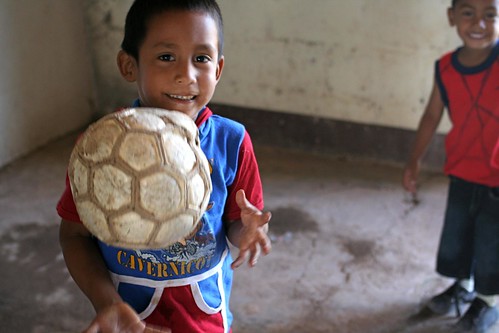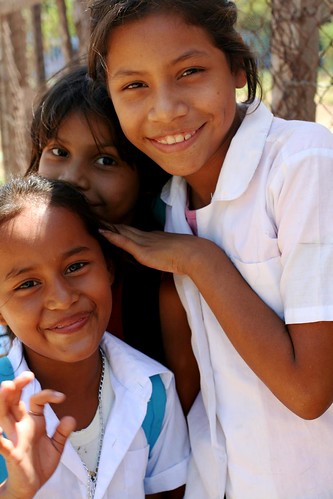Difference between revisions of "Adopting from Nicaragua"
(→Who Can Adopt) |
|||
| Line 44: | Line 44: | ||
=Who Can Adopt= | =Who Can Adopt= | ||
| + | To bring an [[adopted]] child to the United States from Nicaragua, you must first be found eligible to [[adopt]] by the U.S. Government. The U.S. Government agency responsible for making this determination is U.S. Citizenship and Immigration Services (USCIS). Learn more. | ||
| + | |||
| + | |||
| + | In addition to U.S. requirements for prospective [[Adoptive Parent|adoptive parent]](s), Nicaragua also has the following eligibility requirements: | ||
==Residency== | ==Residency== | ||
| + | |||
| + | Prospective [[Adoptive Parent|adoptive parent]](s) must either be Nicaraguan citizens, have a permanent residence in Nicaragua and plan to remain in Nicaragua until the child reaches 21 years of age, or be U.S. citizens with approved [[I-600A]] or [[I-600]] forms. | ||
==Age of Adopting Parents== | ==Age of Adopting Parents== | ||
| + | |||
| + | Officially, prospective [[Adoptive Parent|adoptive parent]](s) must be between 25 and 40 years of age. However, the Ministry of the Family has been known to be flexible on this requirement on a case-by-case basis. | ||
==Marriage== | ==Marriage== | ||
| + | |||
| + | Both singles and married couples are eligible to [[adopt]]. However, the process can be significantly longer for single parent(s). | ||
==Income== | ==Income== | ||
| + | |||
| + | N/A | ||
==Other== | ==Other== | ||
| + | N/A | ||
=Who Can Be Adopted= | =Who Can Be Adopted= | ||
Revision as of 23:05, 7 April 2014
Contents
Hague Convention Information
Nicaragua is not party to the Hague Convention on Protection of Children and Co-operation in Respect of Intercountry Adoption ( Hague Adoption Convention ). Therefore, when the Hague Adoption Convention entered into force for the United States on April 1, 2008, intercountry adoption processing for Nicaragua did not change.
Nicaraguan law does not allow for a Nicaraguan child to travel to the United States to be adopted. Therefore, prospective adoptive parents must obtain a full and final adoption under Nicaraguan law before the child can immigrate to the United States. Prospective adoptive parents can expect a lengthy process to adopt a child in Nicaragua.
Important Notice: The adoption process in Nicaragua is lengthy and fraught with delays and uncertainty. The entire adoption process - when successful - can take two to three years, with twelve to eighteen months of that processing requiring the adoptive parent's physical presence in Nicaragua.
Nicaraguan law does not allow for a Nicaraguan child to travel to the United States to be adopted. Therefore, prospective adoptive parent(s) must obtain a full and final adoption under Nicaraguan law before the child can immigrate to the United States.
Please note that Nicaraguan adoption law requires a three- to six-month fostering period that must take place in Nicaragua. During this time, prospective adoptive parent(s) are expected to live with and care for the child in Nicaragua. Nicaraguan law prioritizes adoptions by Nicaraguan citizens, meaning that Nicaraguan parent(s) willing and eligible to adopt a child might jump to the head of the queue in front of non-Nicaraguans who may have already been waiting months to adopt a child. If adopting more than one child, be sure all paperwork is filed simultaneously. If not, delays will occur.
The Nicaraguan Ministry of the Family has a history of abrupt staffing changes and requesting documents from adoptive parents not initially required as part of the process. It is strongly suggested that prospective adoptive parent(s) hire a Nicaraguan attorney to assist them in keeping their adoption case on track. Few Nicaraguan government officials speak English. Please see below for a list of attorneys registered with the U.S. Embassy in Managua.
Who Can Adopt
To bring an adopted child to the United States from Nicaragua, you must first be found eligible to adopt by the U.S. Government. The U.S. Government agency responsible for making this determination is U.S. Citizenship and Immigration Services (USCIS). Learn more.
In addition to U.S. requirements for prospective adoptive parent(s), Nicaragua also has the following eligibility requirements:
Residency
Prospective adoptive parent(s) must either be Nicaraguan citizens, have a permanent residence in Nicaragua and plan to remain in Nicaragua until the child reaches 21 years of age, or be U.S. citizens with approved I-600A or I-600 forms.
Age of Adopting Parents
Officially, prospective adoptive parent(s) must be between 25 and 40 years of age. However, the Ministry of the Family has been known to be flexible on this requirement on a case-by-case basis.
Marriage
Both singles and married couples are eligible to adopt. However, the process can be significantly longer for single parent(s).
Income
N/A
Other
N/A
Who Can Be Adopted
How to Adopt
Adoption Authority
The Process
Traveling Abroad
Applying for Your U.S. Passport
A valid U.S. passport is required to enter and leave Nicaragua. Only the U.S. Department of State has the authority to grant, issue, or verify U.S. passports. Getting or renewing a passport is easy. The Passport Application Wizard will help you determine which passport form you need, help you to complete the form online, estimate your payment, and generate the form for you to print-all in one place.
Obtaining Your Visa
In addition to a U.S. passport, you also need to obtain a visa. A visa is an official document issued by a foreign country that formally allows you to visit. Where required, visas are attached to your passport and allow you to enter a foreign nation. To find information about obtaining a visa for Nicaragua, see the Department of State's Country Specific Information.
Staying Safe on Your Trip
Before you travel, it's always a good practice to investigate the local conditions, laws, political landscape, and culture of the country. The State Department is a good place to start. The Department of State provides Country Specific Information for every country of the world about various issues, including the health conditions, crime, unusual currency or entry requirements, and any areas of instability.
Staying in Touch on Your Trip
When traveling during the adoption process, we encourage you to register your trip with the Department of State. Travel registration makes it possible to contact you if necessary. Whether there's a family emergency in the United States, or a crisis in Nicaragua, registration assists the U.S. Embassy or Consulate in reaching you. Registration is free and can be done online.
After Adoption
What resources are available to assist families after the adoption?
Many adoptive parents find it important to find support after the adoption. Take advantage of all the resources available to your family -- whether it's another adoptive family, a support group, an advocacy organization, or your religious or community services.
Here are some good places to start your support group search:
Child Welfare Information Gateway
North American Council on Adoptable Children
Adoption Services Support Group for Adopting Persons
SOURCE
Intercountry Adoption, Bureau of Consular Affairs. U.S. Department of State Country Information










